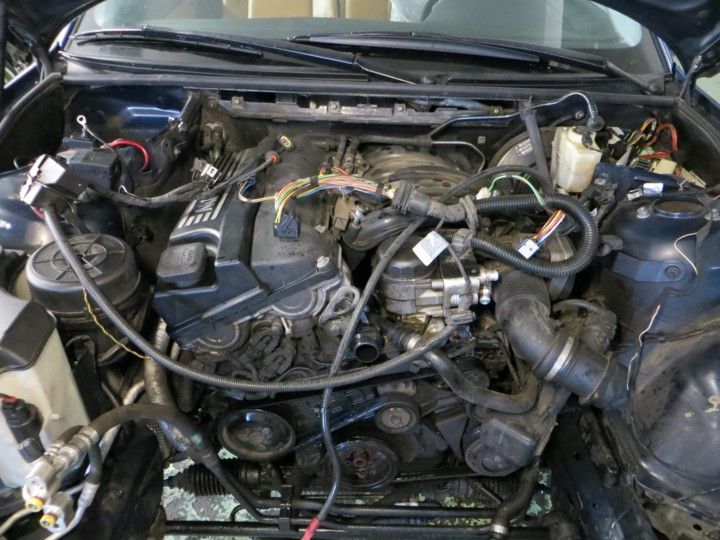Important Factors To Consider for Choosing the very best Engine for Your Requirements
In the realm of choosing the perfect engine to fulfill your demands, several critical aspects demand meticulous factor to consider to guarantee optimal efficiency and effectiveness. From the nuanced balance in between power and efficiency to the often-overlooked elements of maintenance and solution needs, each aspect plays a critical duty in establishing the most suitable engine for your specific needs. As the intricacy of engine modern technologies continues to advance, critical one of the most fitting choice demands a deep understanding of the interplay in between various considerations. By checking out the detailed web of elements that underpin this decision-making procedure, a more clear course emerges towards choosing an engine that not just satisfies however exceeds your assumptions.
Power and Efficiency
When reviewing engines for optimum efficiency, it is essential to prioritize both power output and efficiency. Power output measures the ability of an engine to create power, which straight influences its efficiency. A high power outcome is necessary for requiring tasks such as durable applications or high-speed demands. It guarantees that the engine can deal with the workload effectively and efficiently. However, power alone is not sufficient; efficiency plays a substantial duty in determining the overall efficiency of an engine. Effectiveness refers to how well the engine transforms gas into usable power. An extra reliable engine will deliver far better gas mileage, reduced emissions, and decreased operating expenses. Striking the right equilibrium between power output and performance is crucial to choosing an engine that meets your certain requirements. It is necessary to take into consideration aspects such as the intended use of the engine, ecological impact, and long-term expense implications when making this choice. By carefully evaluating both power and effectiveness, you can pick an engine that delivers ideal efficiency and meets your demands effectively.
Fuel Performance and Economic Situation
Fuel performance refers to the engine's capacity to transform gas into energy with minimal waste, directly impacting operating costs and environmental sustainability. Engines with higher fuel performance not just lower gas expenses but also decrease carbon emissions, contributing to a greener operation.

Compatibility and Application
Thinking about the gas effectiveness and economic situation of an engine, the following crucial element to address is its compatibility and application within specific functional contexts. Compatibility refers to how well the engine integrates with the general system or tools it powers.
Various engines are created for certain functions, whether it be commercial machinery, marine vessels, vehicles, or power generators. Understanding the intended application allows for the selection of an engine that can supply the needed power result, torque, and functional qualities.
Upkeep and Service Demands
Upkeep and solution requirements play a critical role in making sure the long life and optimal efficiency of an engine. Normal maintenance is vital to protect against break downs, prolong the life-span of the engine, and maintain its effectiveness. When picking an engine, it is essential to think about the supplier's advised upkeep schedule and the availability of service centers or qualified service technicians.
Aspects such as the regularity of oil adjustments, filter replacements, and general evaluations can significantly affect the engine's performance. Some engines may call for even more frequent servicing based on their design and use, moved here while others might have longer periods in between upkeep checks. It is essential to stick to these solution demands to prevent expensive link repair services and unforeseen downtime.

Expense and Budget Plan Considerations
Budget constraints usually play a significant duty in the decision-making procedure when selecting an engine for a particular application. When taking into consideration the expense and budget effects of selecting an engine, it is vital to examine not only the first acquisition rate yet also the lasting expenses linked with maintenance, gas usage, and prospective upgrades or repair services. It is important to strike a balance between the ahead of time expense of the engine and its total lifecycle expenses to guarantee that the chosen engine stays monetarily lasting throughout its operational life-span.
Aspects such as fuel effectiveness, integrity, and sturdiness can directly impact the overall expense of possession of an engine. While a much more pricey engine might have greater ahead of time prices, it might possibly lead to Clicking Here reduced upkeep and gas expenditures with time, hence offering better worth over time. In addition, taking into consideration the availability and cost of extra components, along with the convenience of upkeep and solution, can assist stop unforeseen monetary stress in the future. By very carefully examining these expense and budget plan considerations, you can make an informed decision that aligns with your functional demands and financial restraints.
Conclusion
Gas efficiency refers to the engine's capability to transform fuel into power with minimal waste, directly impacting operating expenses and ecological sustainability.Aspects affecting fuel effectiveness consist of engine design, combustion performance, and overall efficiency optimization. Additionally, choosing the appropriate gas kind and grade as recommended by the engine producer can further boost efficiency and extend engine life-span.
Engines with great utility features and readily offered components can reduce upkeep prices and reduce the time the engine is out of operation - bmw 318ti. It is critical to strike a balance between the in advance price of the engine and its overall lifecycle costs to make sure that the picked engine continues to be financially sustainable throughout its operational life expectancy